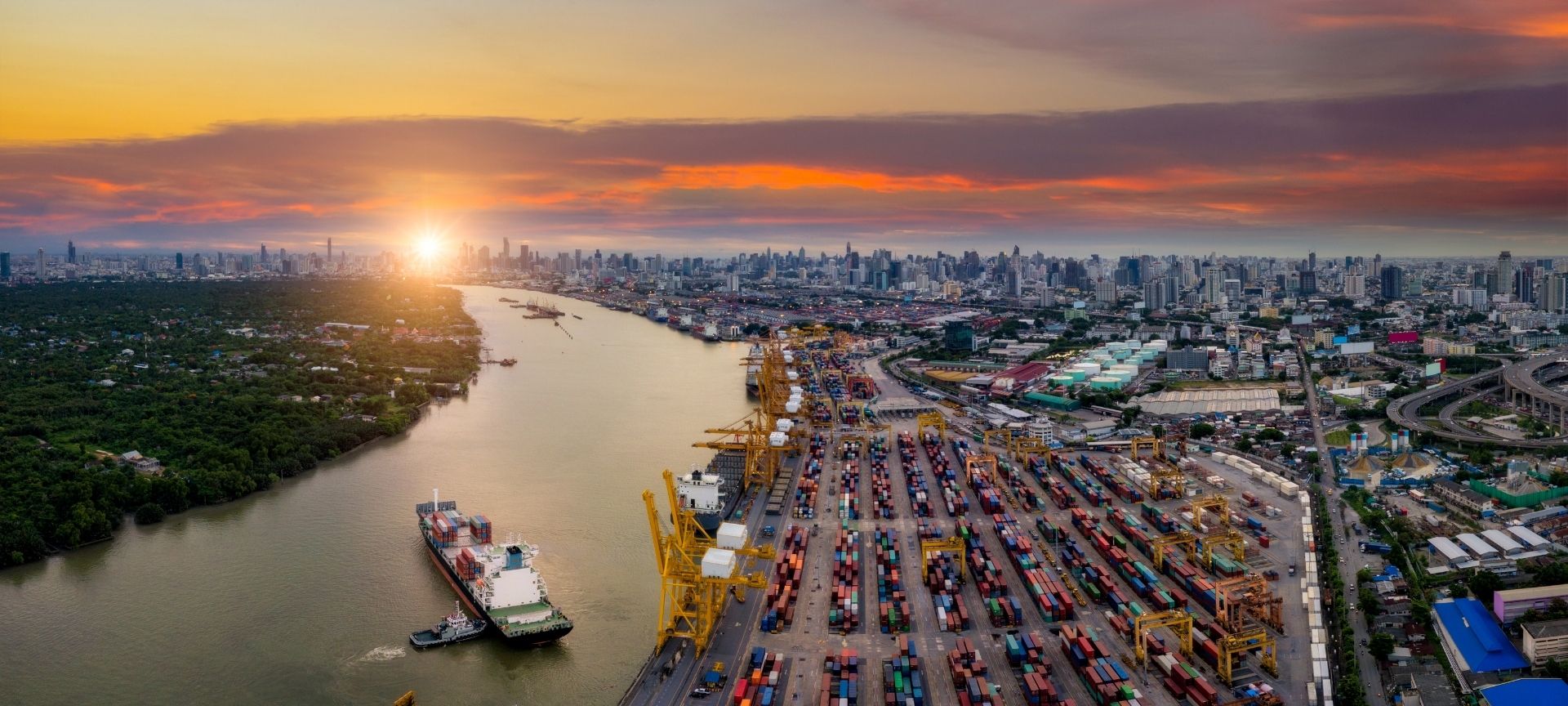COP26, decarbonisation and Green Ports – a turning point for the Maritime sector?
It has been a busy few weeks in the Green Ports space, with October’s Green Ports Congress rapidly followed by COP26 and the 77th Marine Environment Protection Committee (MEPC) meeting. But what are the outcomes of the many discussions at these summits, and have they done enough to drive real change in global shipping and port operations?

Disappointing lack of certainty
While some good progress has been made – not least in underlining the importance of driving real environmental change if humanity is to survive – there were some disappointments in terms of direction.Perhaps the most frustrating development was MEPC once again deferring its discussion on decarbonisation in the shipping industry. COP26 had driven significant commitment to achieving net zero by 2050, yet this immediate momentum was lost with the International Maritime Organisation, missing such a timely opportunity to start driving strategic regulation.
Without agreement on carbon pricing or potential legislation to create a roadmap for change in the industry, the responsibility for decarbonisation sits with the private sector – which creates many challenges.
Connectivity is crucial
Decarbonisation is not an area where organisations can go it alone. The port sector has to work with and respond to its customers in shipping. But a global industry needs global standards, and an enabling framework is vital to avoid regulation conflicts for an international sector operating under local legislation and compliance supervision.Regulation continues to be unclear, particularly when it comes to the handling, storage, and refuelling procedures of alternative energy carriers – and nobody wants to invest in new vessels with 30-year lifespans if there’s a risk of adopting the wrong technology.
Decarbonisation will take years to accomplish, and the maritime sector needs clarity now about the direction to pursue. The European Commission received criticism for setting specific targets for the shipping sector without global collaboration – but, perhaps, some leadership action is better than none.
Creating a financial opportunity
Despite the continuing challenges created by the lack of global direction, COP26’s focus on the financial side of decarbonisation spells positive news for progress. The fact that organisations will be increasingly held to account for their carbon emissions, and must deliver total strategic transparency, will be a driver of positive change. For the first time, investors and shareholders will be able to measure and then steer actions in environmental matters through their investment decisions.This is likely to accelerate existing activity further in the ports sector. In an industry of strong competition and narrow margins, it is often challenging to justify investment in major new projects and infrastructure especially when linked to improving sustainability. But placing a monetary value on carbon reduction should make business cases more compelling, giving them tangible ROI. As a result, we hope to see significant investment in greener port assets and ways of working, particularly where large financial institutions acquire and grow in this sector, in support of overarching green goals.
Plus, the time to start making these plans is now. Maritime assets are designed to last, and so new investments can take months and years to move from approval to implementation. Now that 2050 is less than three decades away, we are already creating the port infrastructure of tomorrow, today.
Prioritisation in challenging times
These demands are not coming at an ideal time for ports. With a global pandemic that is far from under control and supply chains increasingly under strain, ‘business as usual’ is demanding enough. But the decisions made today will shape the future of our transport infrastructure and commodity trading, vital for the green delivery of a healthy planet.The good news is that much knowledge has been gained in this sector about the different routes to decarbonisation. We already have the tools and strategies to establish robust baseline assessments that will enable meaningful progress. In addition, ports have always been open to sharing ideas and working collaboratively – so perhaps standardization may not be such a vast obstacle to overcome.
For the road to net zero where so much uncertainty remains, there are huge benefits in drawing on collective experience. Seeking the support and insights of sector experts is the key to unlocking a zero-carbon future – and it was enormously encouraging to see at Green Ports Congress that ports all over the world are ready to make that commitment.
